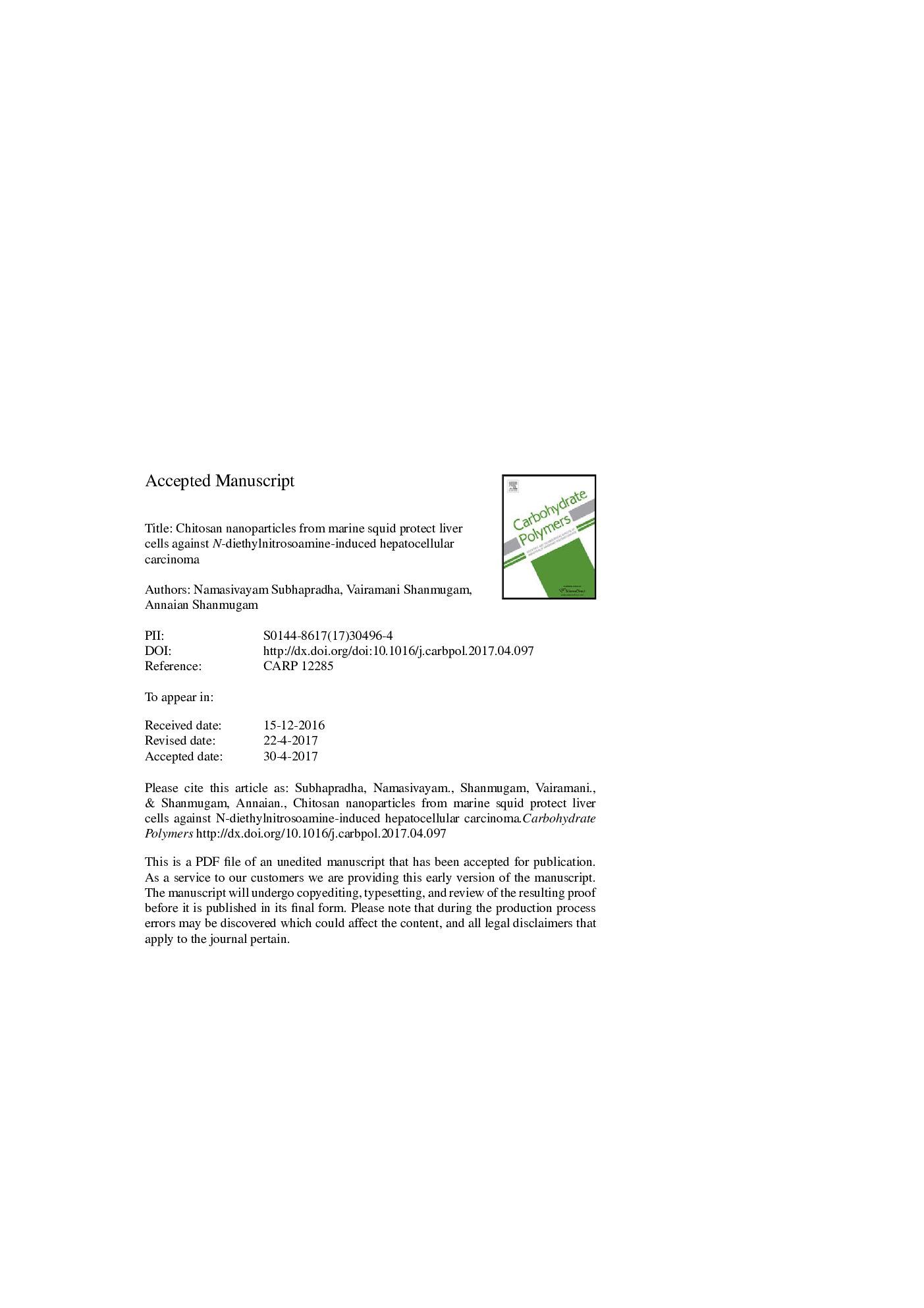| Article ID | Journal | Published Year | Pages | File Type |
|---|---|---|---|---|
| 5157574 | Carbohydrate Polymers | 2017 | 31 Pages |
Abstract
Rationale of this study was framed to investigate the protective effect and anti-cancer property of nanoparticles based on chitosan isolated from squid, Sepioteuthis lessoniana, on hepatic cells in N-Nitrosodiethylamine-induced hepatocellular carcinoma in rats. The results conferred that the chitosan nanoparticle supplementation had a protective effect on liver cells by reducing the levels of marker enzymes and bilirubin and thus increasing the albumin levels. The level of reduced glutathione, ascorbic acid and α-tocopherol significantly increased in both post- and pre-treatment with chitosan nanoparticles. The levels of antioxidant enzymes were enhanced and lipid peroxidation products were diminished while treating nitrosodiethylamine-induced hepatocellular carcinoma with chitosan nanoparticles. Supplementation of chitosan nanoparticles had potent anti-hyperlipidemic property that was evidenced by monitoring the serum lipid levels and its components. Animals pre-treated with chitosan nanoparticles along with nitrosodiethylamine showed a significant reduction in the total cholesterol and triglycerides levels with increase in the levels of phospholipids and free fatty acids. Chitosan nanoparticles treated rats showed significant increment in high-density lipoprotein cholesterol and reduction in low-density lipoprotein and very low-density lipoprotein cholesterol when compared with levels in nitrosodiethylamine-induced hepatocellular carcinoma. Nitrosodiethylamine-induced carcinoma changes on circulation and hepatic antioxidant defense mechanism were regulated by chitosan nanoparticles, concluding that the chitosan nanoparticles have a potent protective effect on liver cells which might be due to its robust antioxidant and anti-lipidemic property.
Keywords
ALTGPXGSHTBARSHDLDMRTCATVLDLNDEAGGTN-nitrosodiethylamineLHPHCCγ-Glutamyl transferaseDuncan’s multiple range testASTalanine transaminaseALPAlkaline phosphataseanalysis of varianceANOVAaspartate transaminaseTriglyceridesSODSuperoxide dismutaselactate dehydrogenaseLDHhigh density lipoproteinlow density lipoproteinLDLvery low density lipoproteinsChitosan nanoparticleslipid hydroperoxidesThiobarbituric reactive substancesCatalaseHepatocellular carcinomareduced glutathioneglutathione peroxidase
Related Topics
Physical Sciences and Engineering
Chemistry
Organic Chemistry
Authors
Namasivayam Subhapradha, Vairamani Shanmugam, Annaian Shanmugam,
